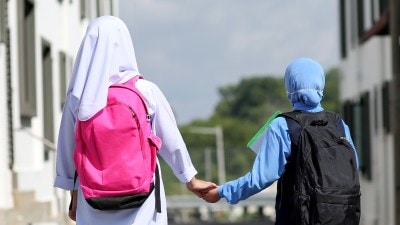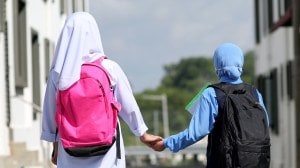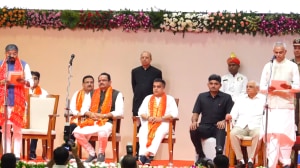The soldier too has rights
The Army is neither a means nor an end to the Kashmir problem. It is not even a substitute for civil administration. But it has involunta...

The Army is neither a means nor an end to the Kashmir problem. It is not even a substitute for civil administration. But it has involuntarily donned the uniform of a school teacher, mason, road builder and even shares its rations with the people as the civil administration watches idly from the sides.
But the Army, desperate to seek acceptance in the state, dare not complain. Army men patrol the streets, erect check posts and keep an eye on the law and order situation which happens to be the task of the police. They also provide medical assistance not only to the people but also to their animals absolutely free of cost. This includes operating upon them, giving them medicines and looking after the sanitation conditions in their neighbourhoods, the task of the health and sanitation department.
And both officers and jawans feel shackled by the laws that the Army Headquarters in Delhi have forced them to abide with. Again both officers and jawans wonder why human rights rules do not apply to them. In theLolab valley near Kupwara which at one time was seen as the “liberated area” by terrorists and their masters across the border, an officer wondered why no human rights champion raised a question about the living and working conditions of army personnel.
And of course why no rights champion raises even a little finger when a soldier hailing from the Andaman islands is shot through the head while patrolling the jungles of Kupwara. Hiding on a tree top, the terrorist snuffs out the life of a soldier, even as another soldier is probably taking the terrorist’s wife to the nearby army hospital for child delivery. Lady doctors in the Army have been specially posted to these areas to help local women in child birth and other problems. Surely jawans posted in Kupwara require no gynecologists.
Yet the Army, stretched to the core trying to stop infiltration from across the border, prefers not to protest when orders from the Ministry of Home Affairs (M-HA) give them the additional task of running some sort of aparallel administration to bring about development in the state. So apart from tracking down and killing terrorists and stopping infiltration from across the border, the Army builds homes, telephone booths, fair price shops and schools. And there are instances of the locals hiding terrorists and foreign mercenaries in the same houses built and re-built by the Army to attack soldiers.
Soldiers get conflicting orders. During training they are taught to kill the enemy. And that is the only lesson they remember. But here field commanders, following orders from New Delhi, tell them to get the misguided youth back in the fold of normal life. That the misguided youth carries cyanide tipped bullets and the state-of-the-art weapon bearing Pakistan Ordnance Depot markings is of little consequence.
Did we hear even a murmur from human rights activists when a Major was killed during a cordon and search operation on April 13? Major Harminder Pal Singh, hailing from Ropar, was posted in north Kashmir. He receivedintelligence inputs about the dreaded Hizbul Mujahideen terrorists having taken refuge with some local residents in a village. After a fierce encounter he succeeded in nabbing two terrorists and killing two more but fell to the burst from an automatic rifle. If a single villager was killed, it would have made news. Rights champions from Geneva and Washington would have taken up the `violation’. It seems Major Singh has no rights.
And this is what the armed forces feel miserable about. Nobody raises a voice in their favour when they are shot in operations. Nobody takes proper care of the families of soldiers serving in forward areas and even lesser attention is paid to the widows and parents of dead soldiers.
Guns are not a solution to the Kashmir problem. Strangely, almost a decade after terrorism raised its ugly head in perhaps the most beautiful part of India, the system is yet to realise this fact. The solution has to be found elsewhere. That is if anyone is keen to look for it.





- 01
- 02
- 03
- 04
- 05


























